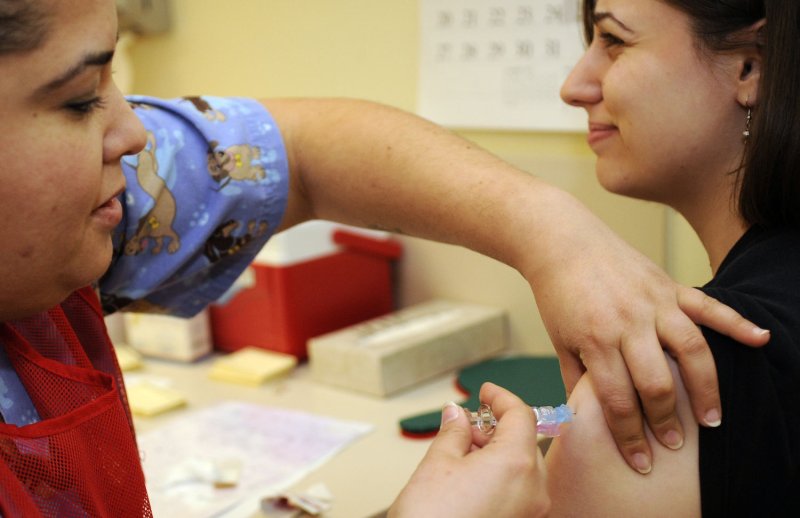Parents keeping daughters from getting Human papillomavirus vaccine. UPI/Alexis C. Glenn |
License Photo
ATLANTA, July 27 (UPI) -- Although the human papillomavirus vaccine has shown to be safe and effective, the three-dose coverage in young U.S. women declined from 2011-12, officials say.
A report by the Centers for Disease Control and Prevention, using data from the 2012 National Immunization Survey-Teen, found HPV vaccination rates in girls ages 13-17 failed to increase 2011-12.
Among girls unvaccinated for HPV, 84 percent had a healthcare visit where they received another vaccine such as meningitis or pertussis, but not the HPV vaccine. If HPV vaccine had been administered during these doctor's visits, vaccination coverage for more than one dose could be 93 percent rather than 54 percent.
"Progress increasing HPV vaccination has stalled, risking the health of the next generation," Dr. Tom Frieden, director of the CDC, said in a statement. "Doctors need to step up their efforts by talking to parents about the importance of HPV vaccine just as they do other vaccines and ensure it's given at every opportunity."
Parents reported safety concerns as a reason for not vaccinating. In the seven years of post-licensure vaccine safety monitoring and evaluation conducted independently by federal agencies and vaccine manufacturers, no serious safety concerns have been identified, the report said.
HPV vaccination to the Vaccine Adverse Event Reporting System steadily decreased from 2008-12 and the numbers of serious adverse events reported has also declined since 2009.
The findings were published in the CDC's Morbidity and Mortality Weekly Report.















